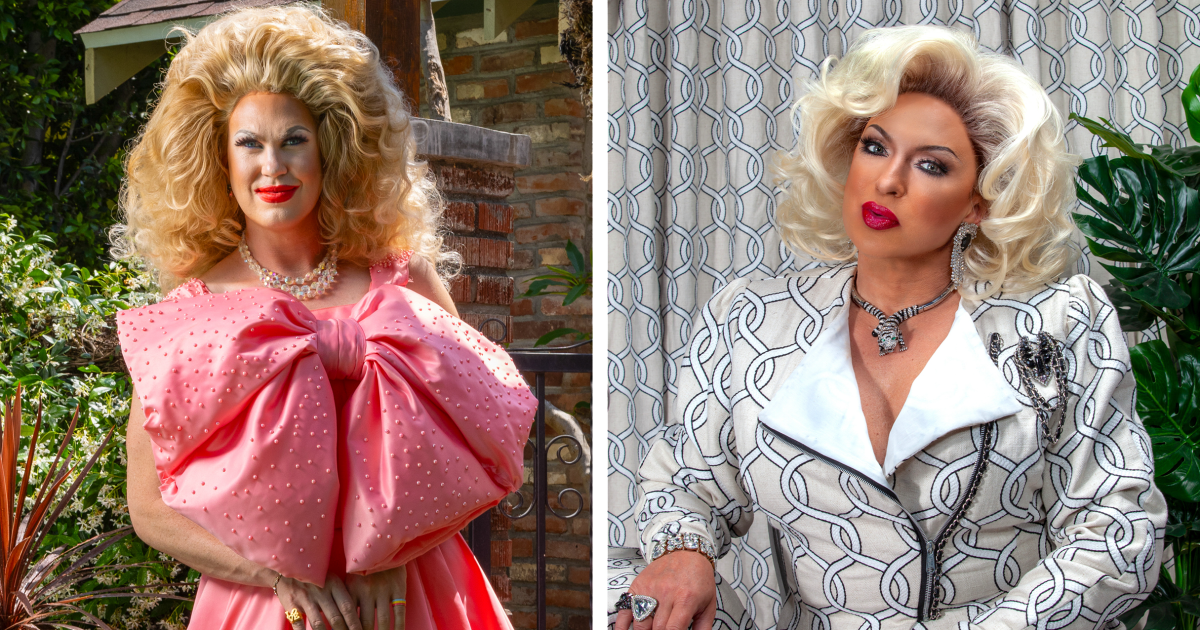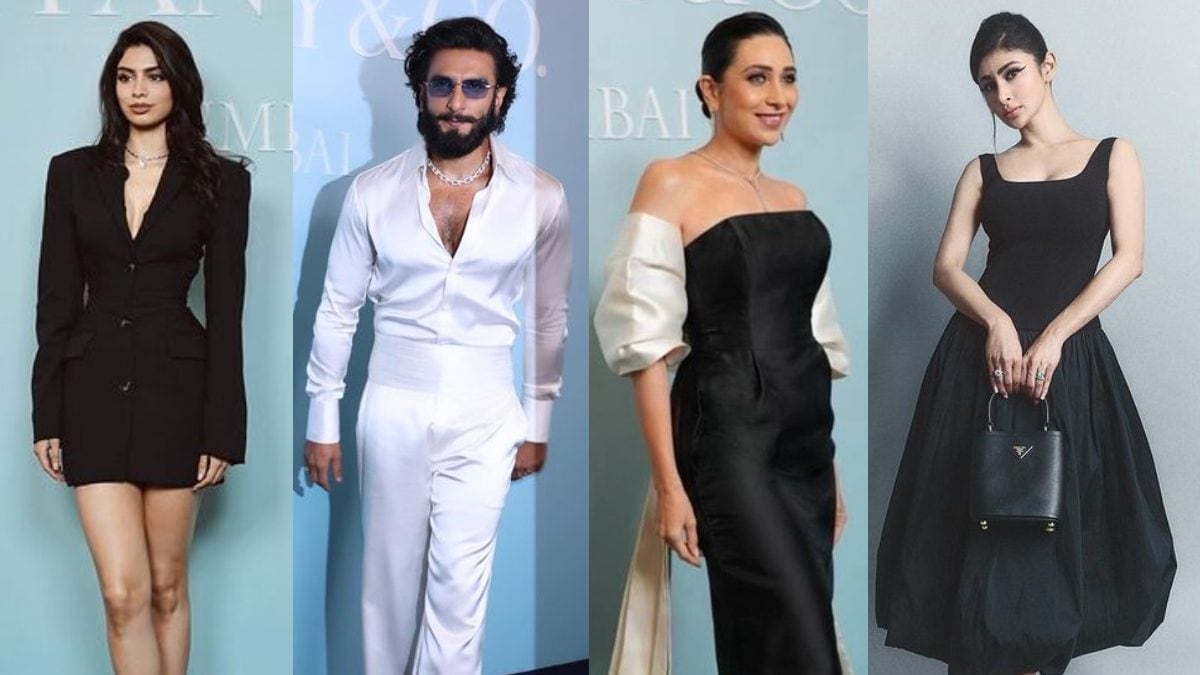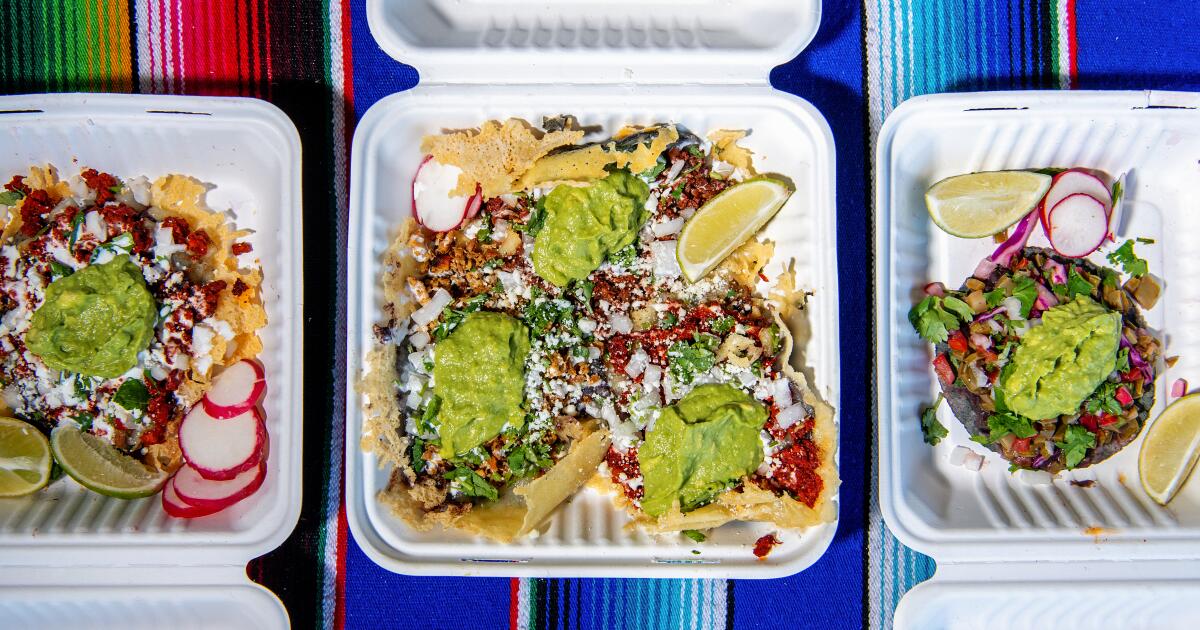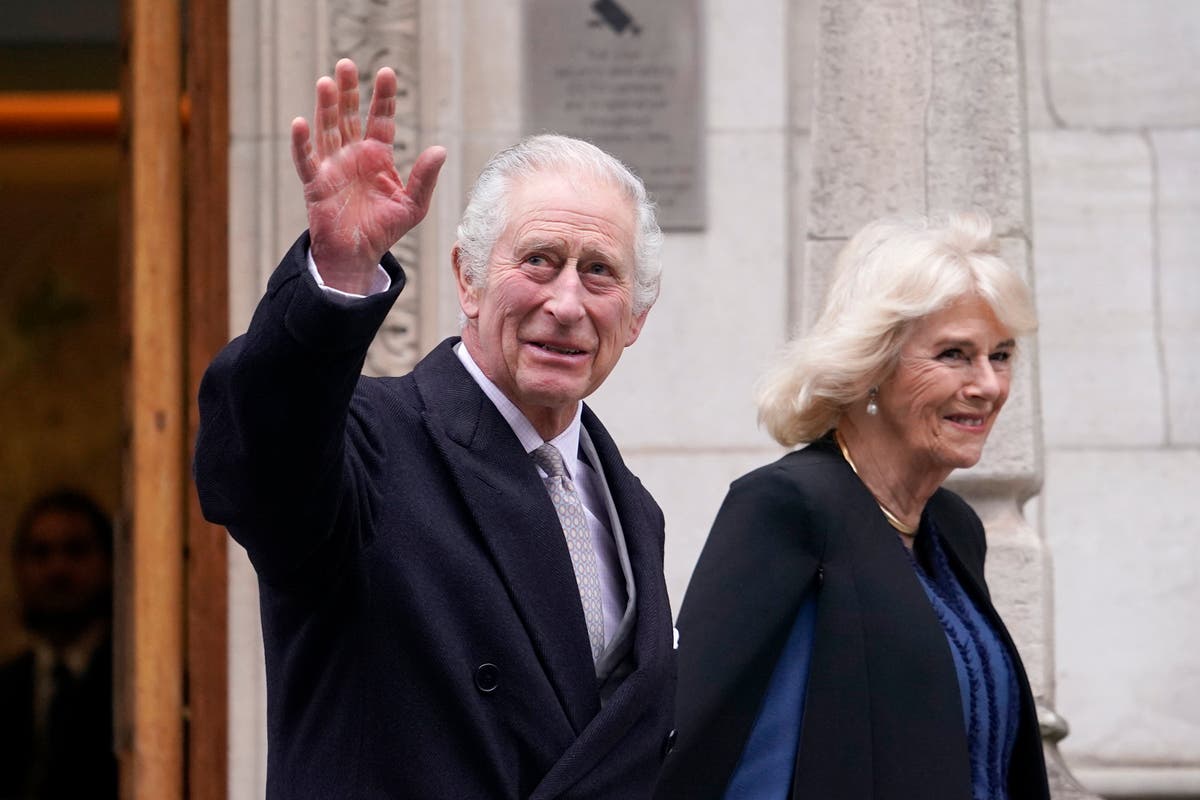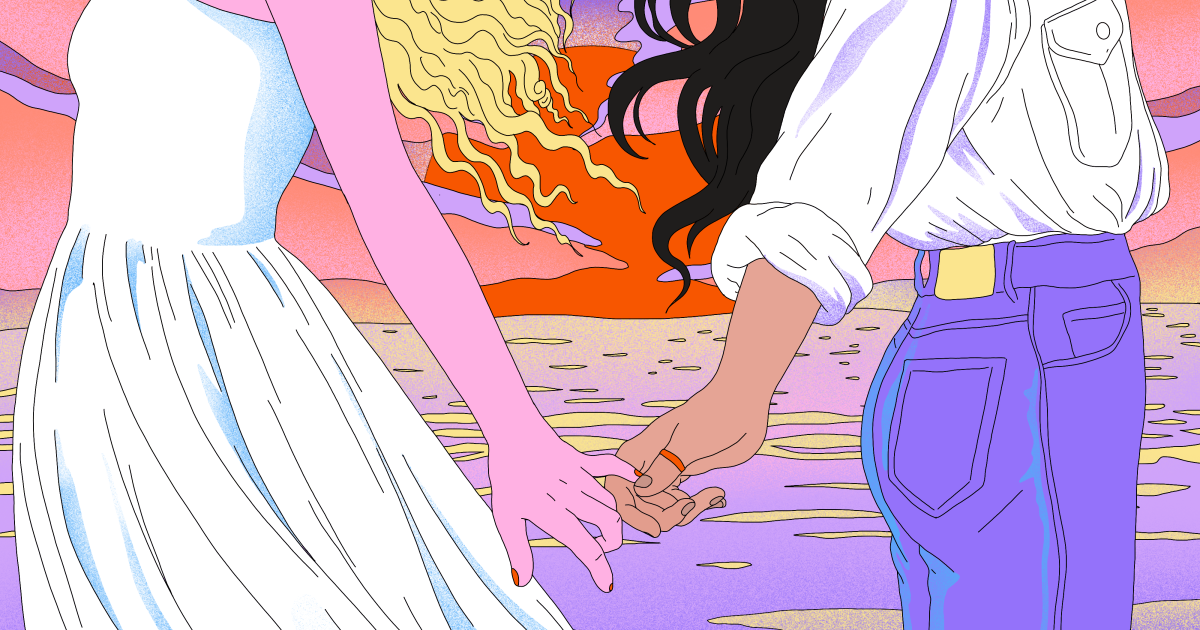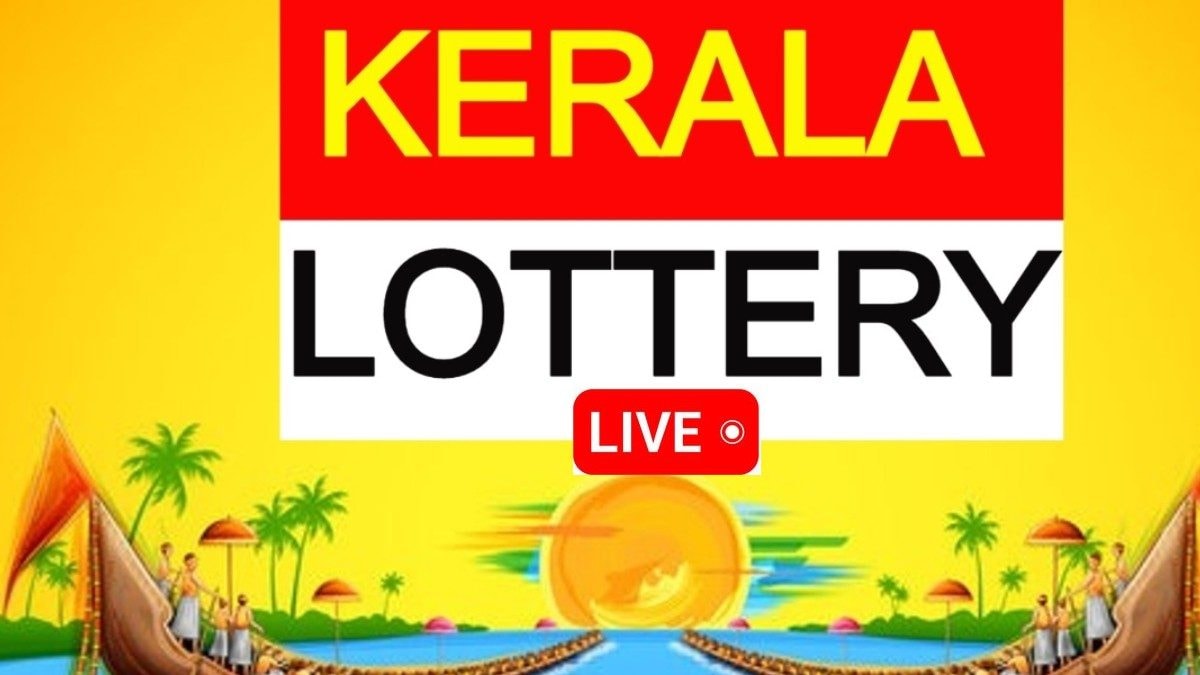It's June and Pride Month is in full swing as LGBTQ+ communities around the world celebrate together and commemorate the Stonewall Uprising in New York City in 1969. Two prominent voices, the drag laureates of West Hollywood and San Francisco, They are booked and busy. There are wigs to style, dresses to wear and parties to attend.
On their busy schedules this month are a number of events: Pride kickoff parties and appearances at official parades in SoCal and NorCal, a panel on drag and film at the Academy Museum of Motion Pictures in Los Angeles, and the flag-raising Pride at City Hall in San Francisco, among many others.
The honorees, San Francisco drag queen D'Arcy Drollinger and Los Angeles native Pickle, the one-name drag queen representing West Hollywood, sat down late last month to discuss their tenures, Drollinger in a video chat and Pickle in person over lunch in Hollywood.
D'Arcy Drollinger.
(Rachel Z Photography)
So what is a laureate? And what specifically is a drag laureate?
A laureate is one who receives an honor or recognition for achievements in an art or science. The best-known awards program in the United States is in the field of poetry. National Youth Poet Laureate Amanda Gorman drew acclaim when she read her poem “The Hill We Climb” at President Biden's 2021 inauguration.
So what exactly is a drag laureate? The answer for Pickle and Drollinger (they are the first two queens in the country to hold this title) is that it is a role that is still being defined. Her individual roles receive an annual stipend funded through the West Hollywood Arts Council for Pickle and the San Francisco Public Library for Drollinger. The role is intended for them to act as spokespersons for local businesses and be ambassadors for their city. Additionally, during their tenure, they must highlight the LGBTQ+ community and elevate the art of drag.
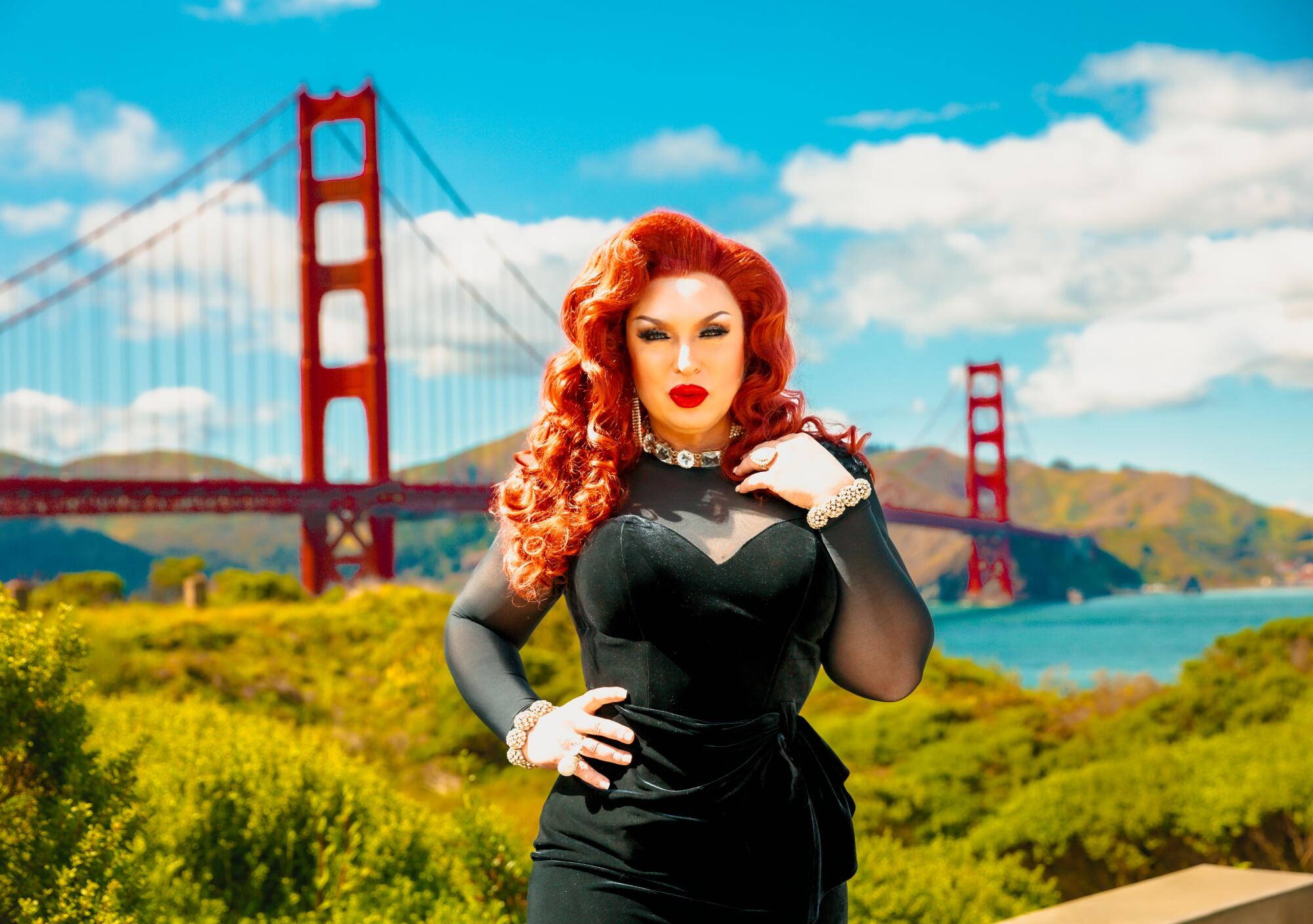
D'Arcy Drollinger.
(Rachel Z Photography)
Why is it important to have these roles in cities with large LGBTQ+ populations?
“The queer community remains at the heart of [this city]” says Drollinger, who believes a position like hers shows a strong commitment by San Francisco leaders to a group that has deep roots in the city and helped shape its identity. The queer communities of San Francisco and Los Angeles have been at the forefront of progressive change, with monumental protests at Compton's Cafeteria in 1966 in San Francisco, Cooper Do-Nuts in downtown Los Angeles in 1959, and Black Cat in Silver Lake in 1967 .
Both award-winning programs arose from COVID-era concerns about deteriorating small businesses and devastated urban cores, as is happening in San Francisco. Across the country, city centers have been largely empty, a product of people conditioned to stay home during the pandemic lockdown. Turning to drag queens and kings, talented performers who are good at drawing crowds and creating a festive atmosphere, seemed like an obvious way to get the LGBTQ community and its allies back out there.
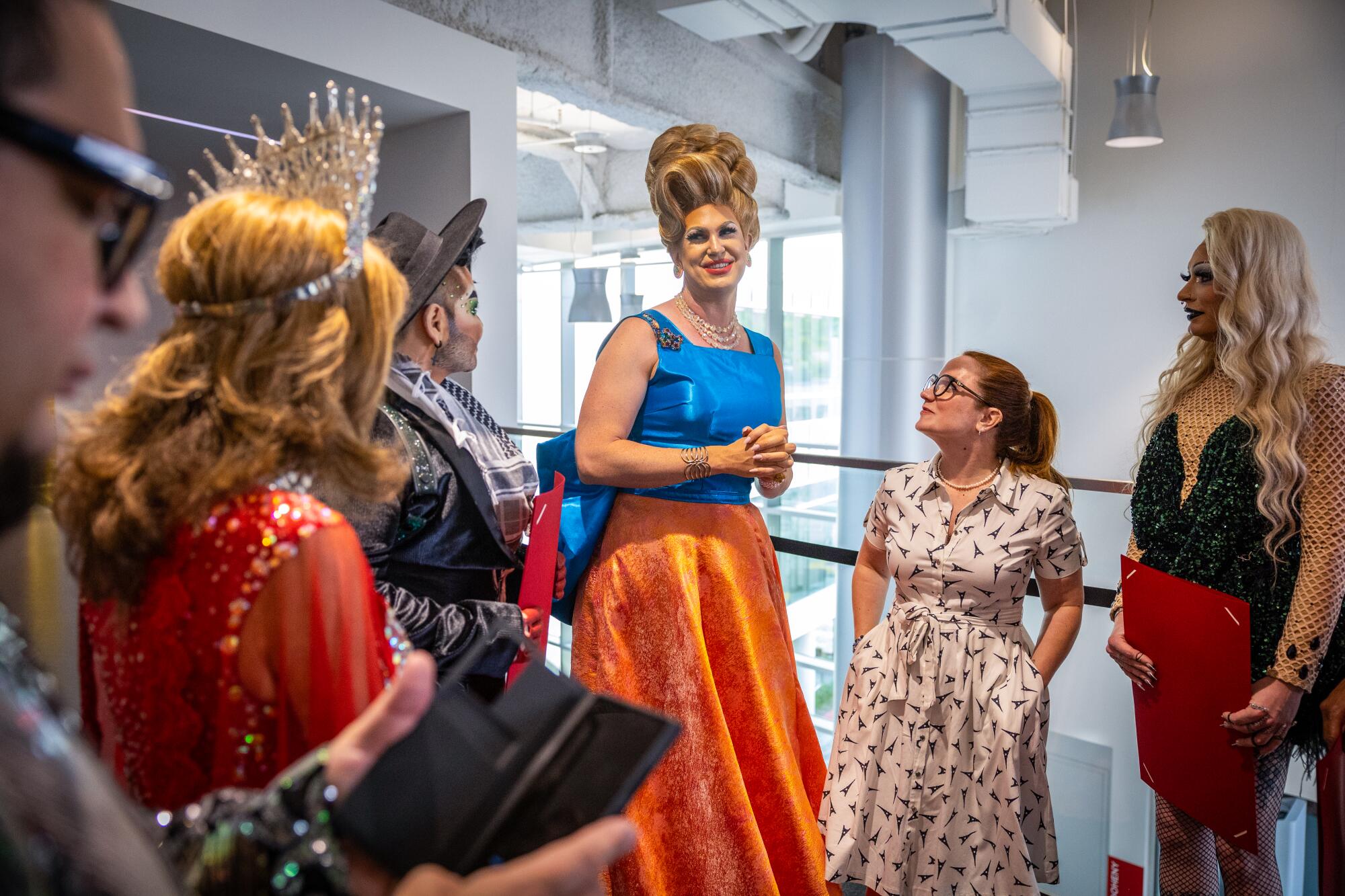
West Hollywood drag winner Pickle, center, receives thanks from Los Angeles County Supervisor Lindsey P. Horvath before hosting the José Sarria Drag Pageant, celebrating Harvey Milk Day in West Hollywood.
(Jason Armond / Los Angeles Times)
“The LGBTQ community has a great history with the city,” says West Hollywood Councilwoman Lauren Meister, who helped draft the initial proposal for the Drag Laureate program in WeHo. “We wanted the drag laureate to be an ambassador for West Hollywood businesses but for her to also promote art and culture. “We wanted to do something that could bring some levity back to our city and keep things edgy.”
Positions like this, in two of the most liberal cities in the United States, at a time when drag queens are everywhere, from television to local bars, might not seem revolutionary. But across the country, the picture may look a little different. Just this year, the American Civil Liberties Union is tracking 25 bills in state legislatures that aim to prevent children from participating in drag shows, force venues that promote shows to register as adult businesses, or ban drag altogether. And in California, drag performers are not immune to harassment from conservative groups.
Pickle, who runs the Los Angeles chapter of Drag Story Hour that hosts storytimes for children at local libraries, was met with angry protests at a story hour in the city of San Fernando last fall. Although it was a harrowing experience, he tries not to let it bother her too much. He continues to host storytimes in Los Angeles County and is working with San Fernando city officials to investigate the incident.
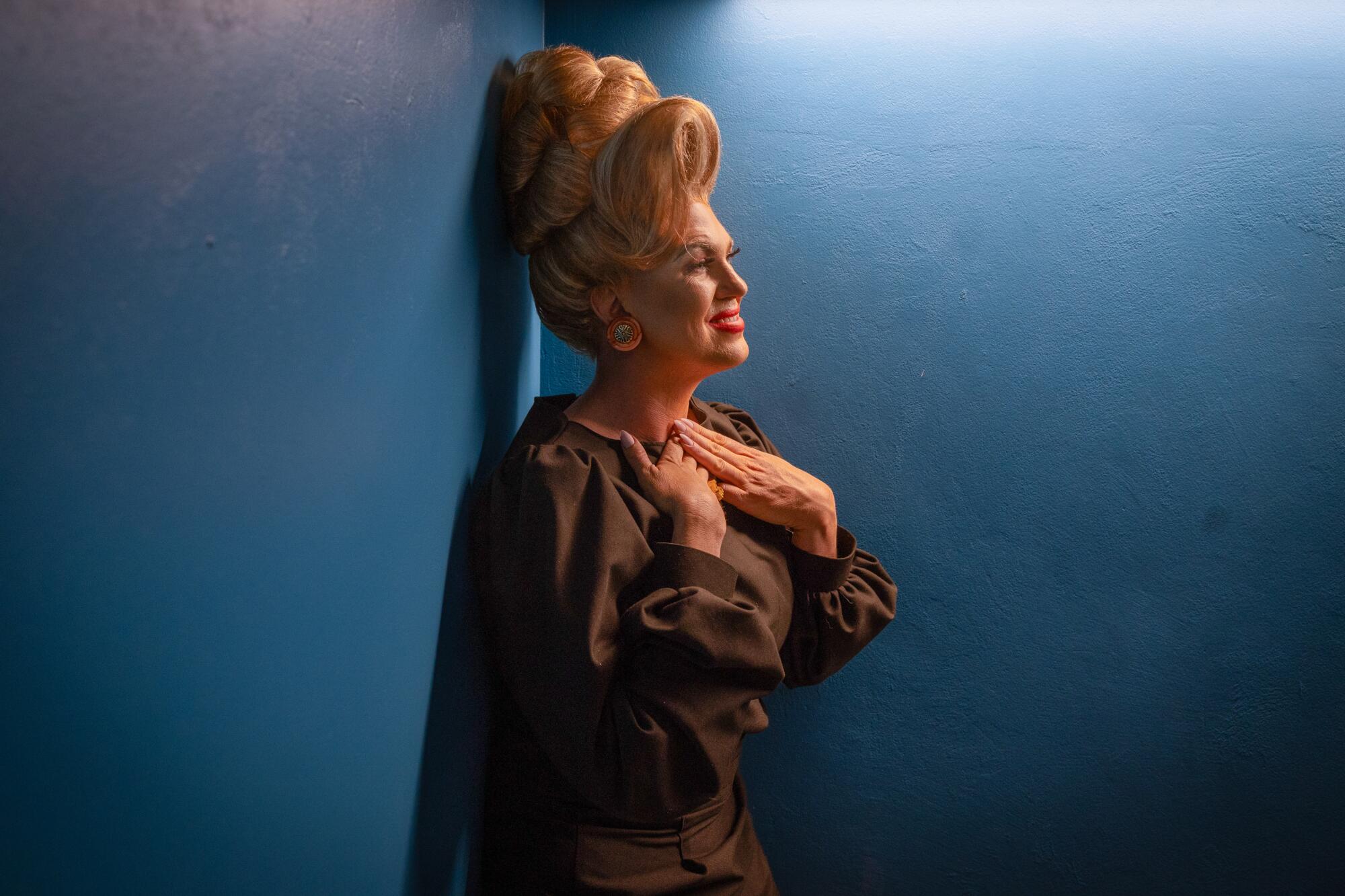
Pickle poses for a portrait after hosting the José Sarria drag contest.
(Jason Armond / Los Angeles Times)
Who are these queens?
In July 2023, Pickle was selected by the West Hollywood Arts Council from a pool of applicants to be the city's first drag laureate. In her official capacity thus far, she has MC'd a Halloween Spectacular in support of the Bob Baker Marionette Theatre, hosted an event celebrating the city of West Hollywood's 39th anniversary, and recently hosted a contest drag in honor of her. by LGBTQ activist José Julio Sarria for Harvey Milk Day.
Pickle, whose name was inspired by drag icon Hedda Lettuce and her favorite order from In-N-Out (cheeseburger, extra onion, no pickles), is excited about the idea of encouraging other drag performers and showcasing the talent they have. is popping up all over Southern California. “Drag is so much more than the bars and clubs that people are used to seeing it in,” says Pickle, who has been performing for about a decade. “It's a legitimate art form that deserves to be highlighted.”
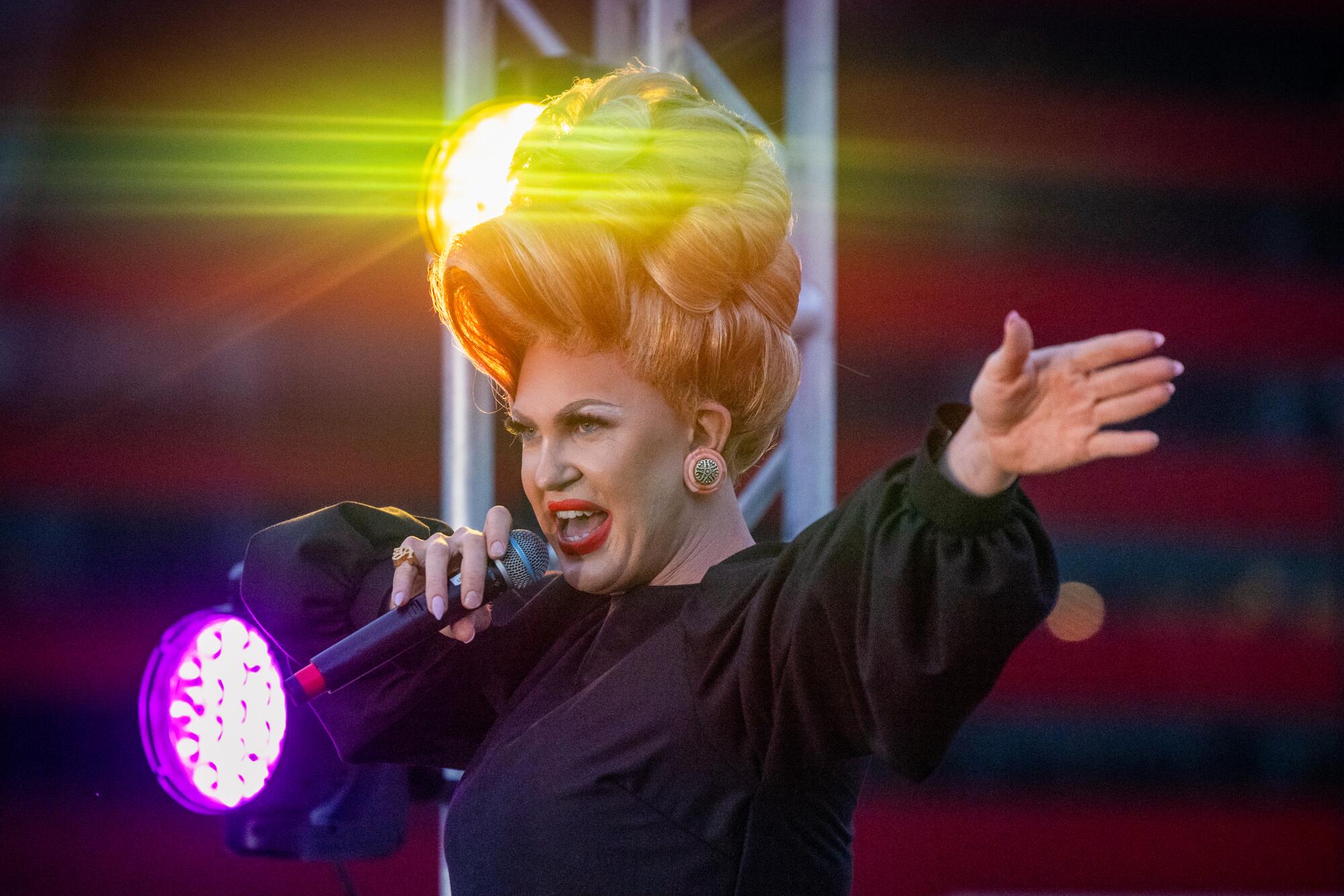
Pickle in the José Sarria Drag Contest.
(Jason Armond / Los Angeles Times)
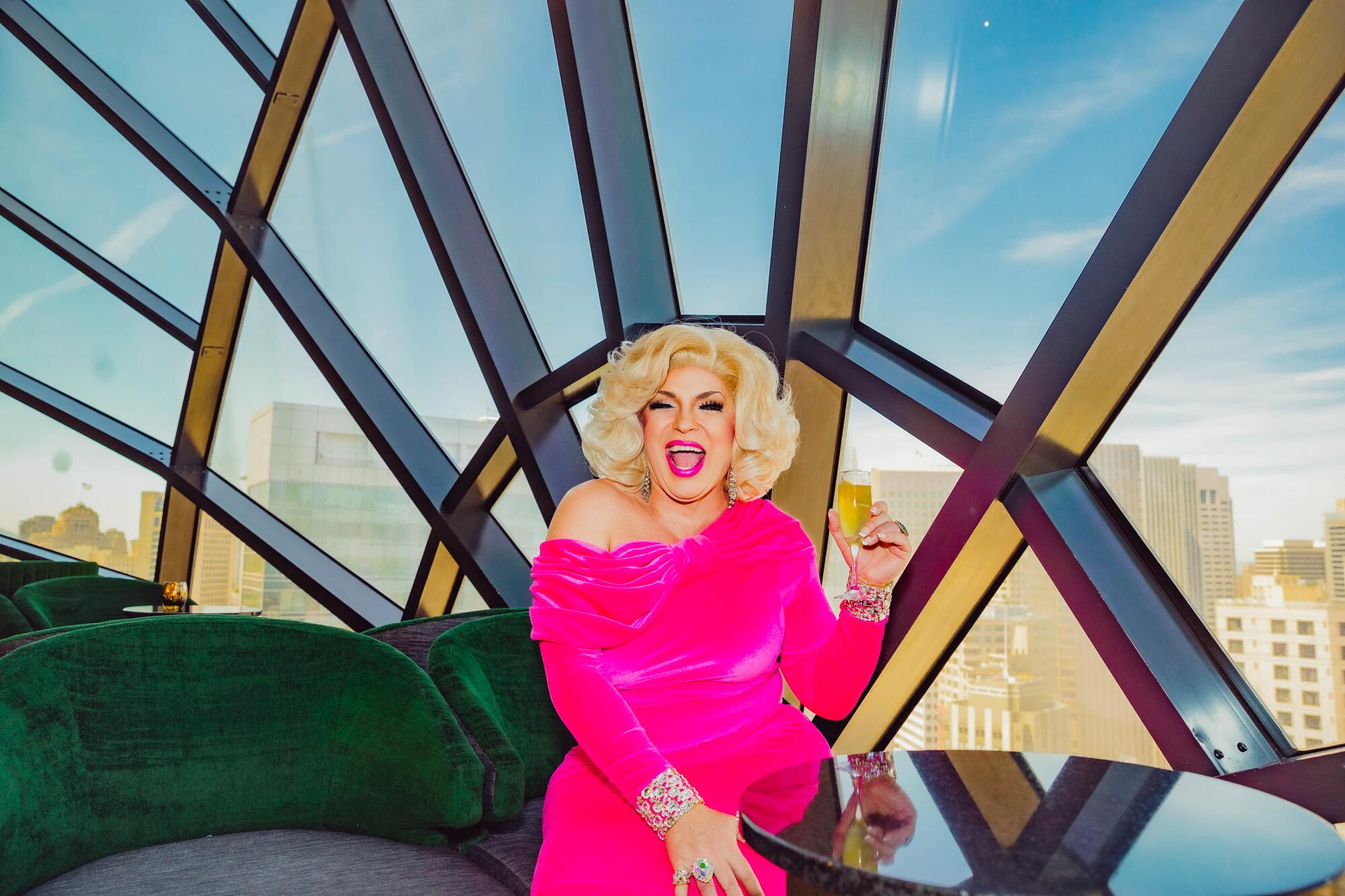
D'Arcy Drollinger.
(Rachel Z Photography)
Drollinger, who was appointed in May 2023, sports a large blonde wig, expressive eyes and full lips. The San Francisco native is a veteran drag performer, writer and actor who has been performing since the '90s. She also owns Oasis, one of the largest drag cabarets in the country. In her role as laureate, she has curated drag stages for the San Francisco Museum of Modern Art and the Outside Lands music festival, and has helped develop drag performances in conjunction with First Thursdays, an effort to promote businesses in downtown San Francisco.
Drollinger has always tried to support other queer artists, primarily through her nonprofit Oasis Arts, which provides mentorship, performance space, and small stipends to queer artists of all genres. With her role as a laureate, she is excited to further shine a light on her community.
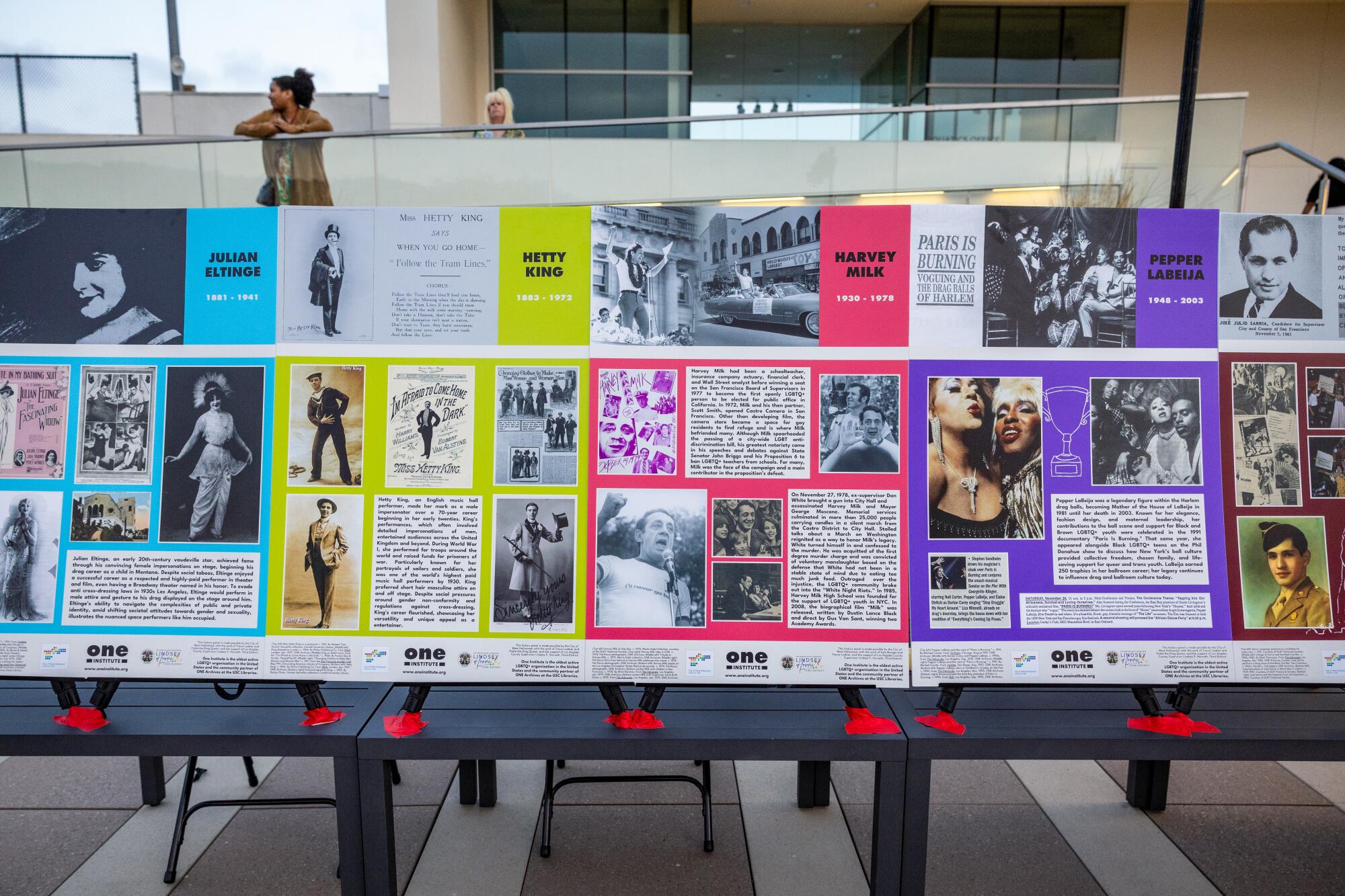
LGBTQ+ history exposed in the José Sarria Drag Competition.
(Jason Armond / Los Angeles Times)
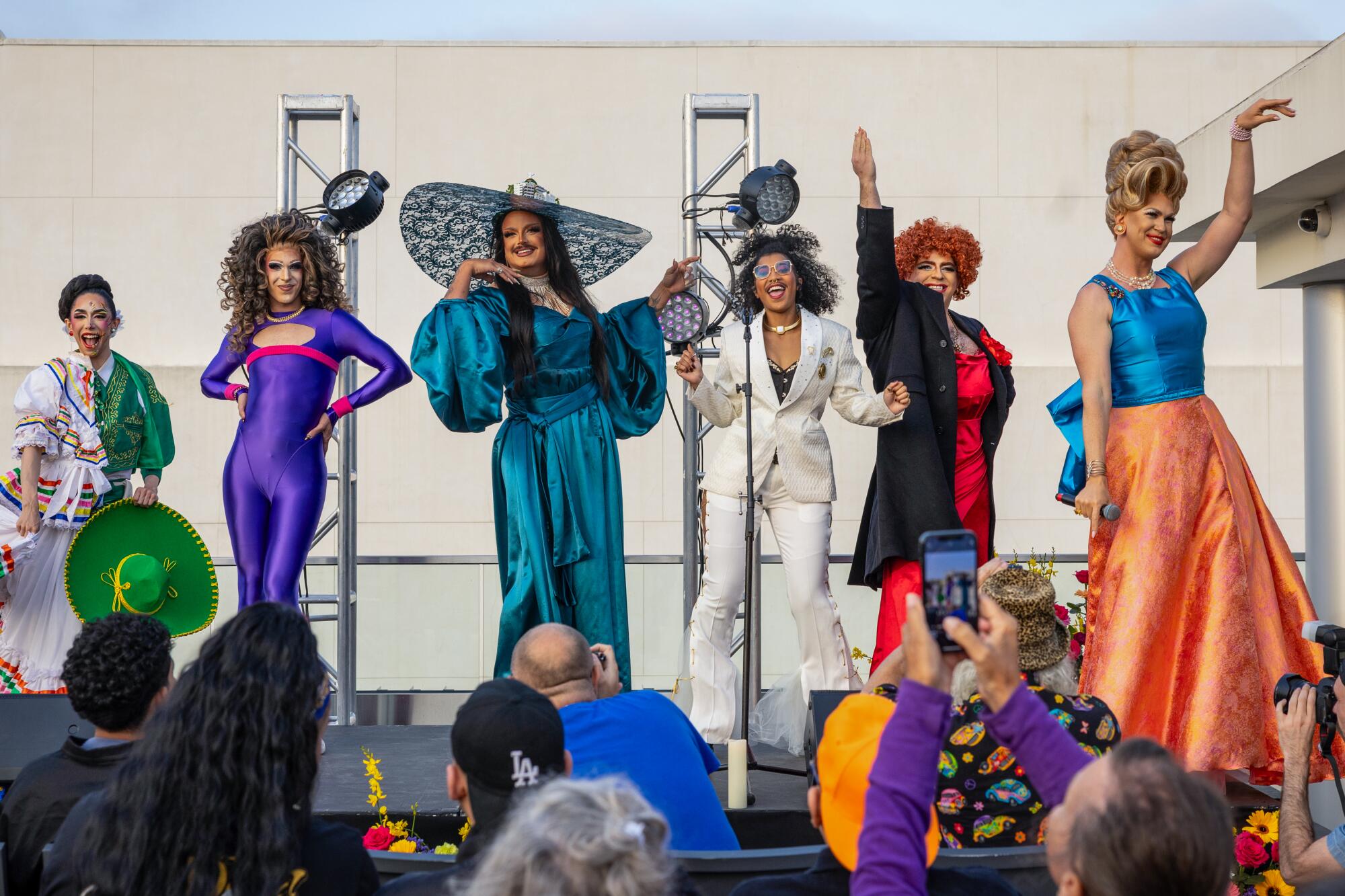
West Hollywood drag laureate Pickle, right, hosts the José Sarria Drag Pageant, celebrating Harvey Milk Day in West Hollywood.
(Jason Armond / Los Angeles Times)
Is diversity and inclusion helping to shape the future of the drag community?
As with anyone who takes on the role of “first,” the question of who will be the next winner arises regularly. Both drag queens say they are aware of the diversity of their communities and the need to bring representation to this new elevated position. But they are aware of the fact that, while they were chosen by a selection committee from a diverse group of people, they are white artists. Pickle and Drollinger say they are confident that diversity will be better reflected in the appointments of awardees in the future.
“I'm only one flavor,” Pickle says of the variety of talent in the drag community. “I spend a lot of my time connecting other drag performers with resources.” One of her initiatives as a drag laureate has been to host quarterly drag roundtables at the Plummer Park Community Center to bring together drag artists of all backgrounds with resources that can help elevate her art.
According to Pickle, there are local arts grants of up to $6,500 specifically intended for trans and gender diverse artists that most artists are unaware of. She feels that artists and performers in the drag community would be strong candidates because they are making art that no one else is making.
She has also witnessed a remarkable change. “We recently rewrote many of the descriptions of these arts scholarships to specifically include drag performers,” she says. “It's incredibly important to be able to see yourself mentioned in these grants and think, 'Oh yeah, this is something I can use.'”
In the Bay Area, Drollinger says creating space for trans and BIPOC communities is paramount. He often hears that there are There should be more trans and BIPOC nights at certain clubs in NorCal. “And so is important,” he says. “But why not include everyone in everything? …Once we have a shift in consciousness, those who are considered outsiders become insiders.”
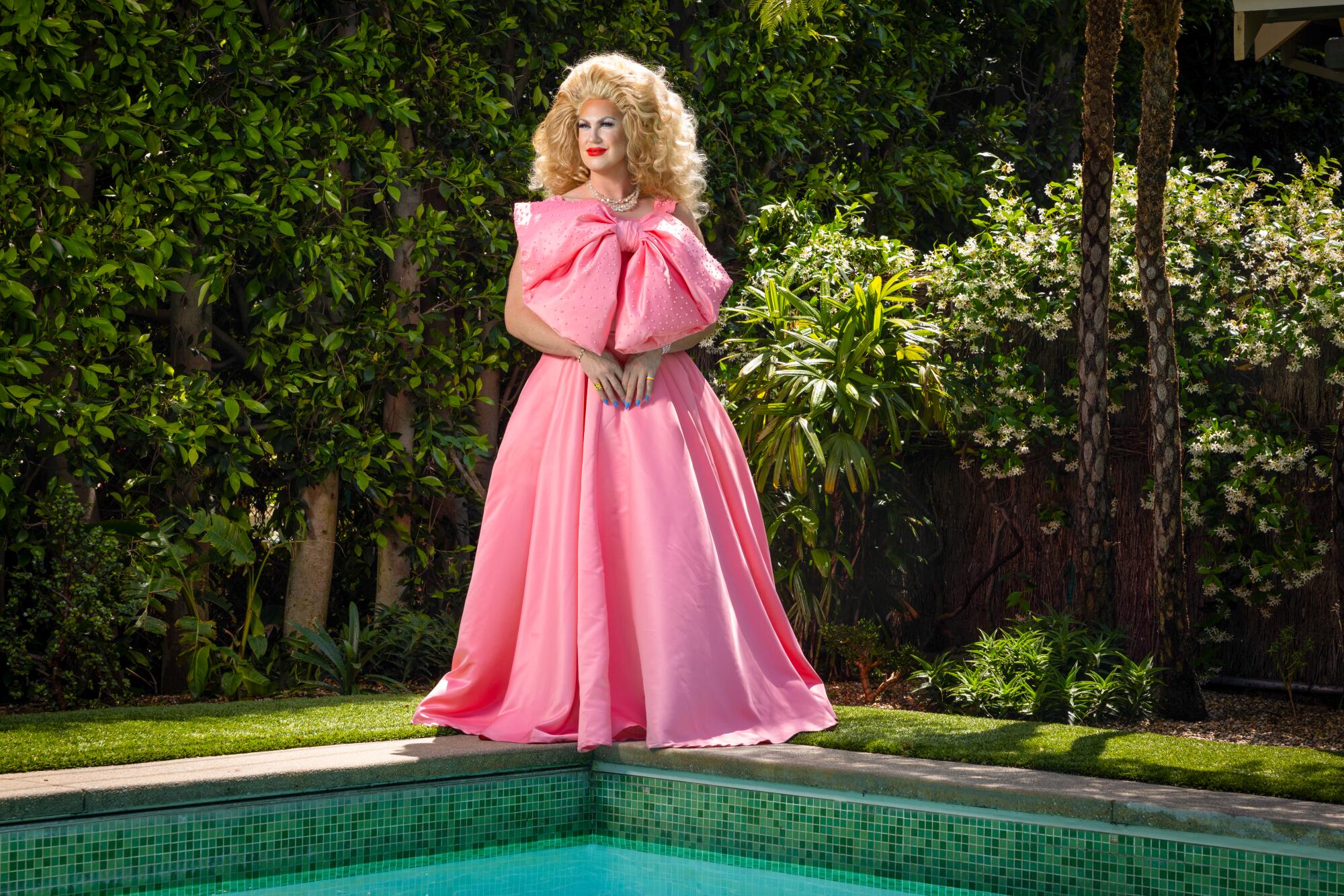
West Hollywood Drag Laureate Pickle, one of the country's first drag laureates, at her childhood home in Koreatown.
(Jason Armond / Los Angeles Times)
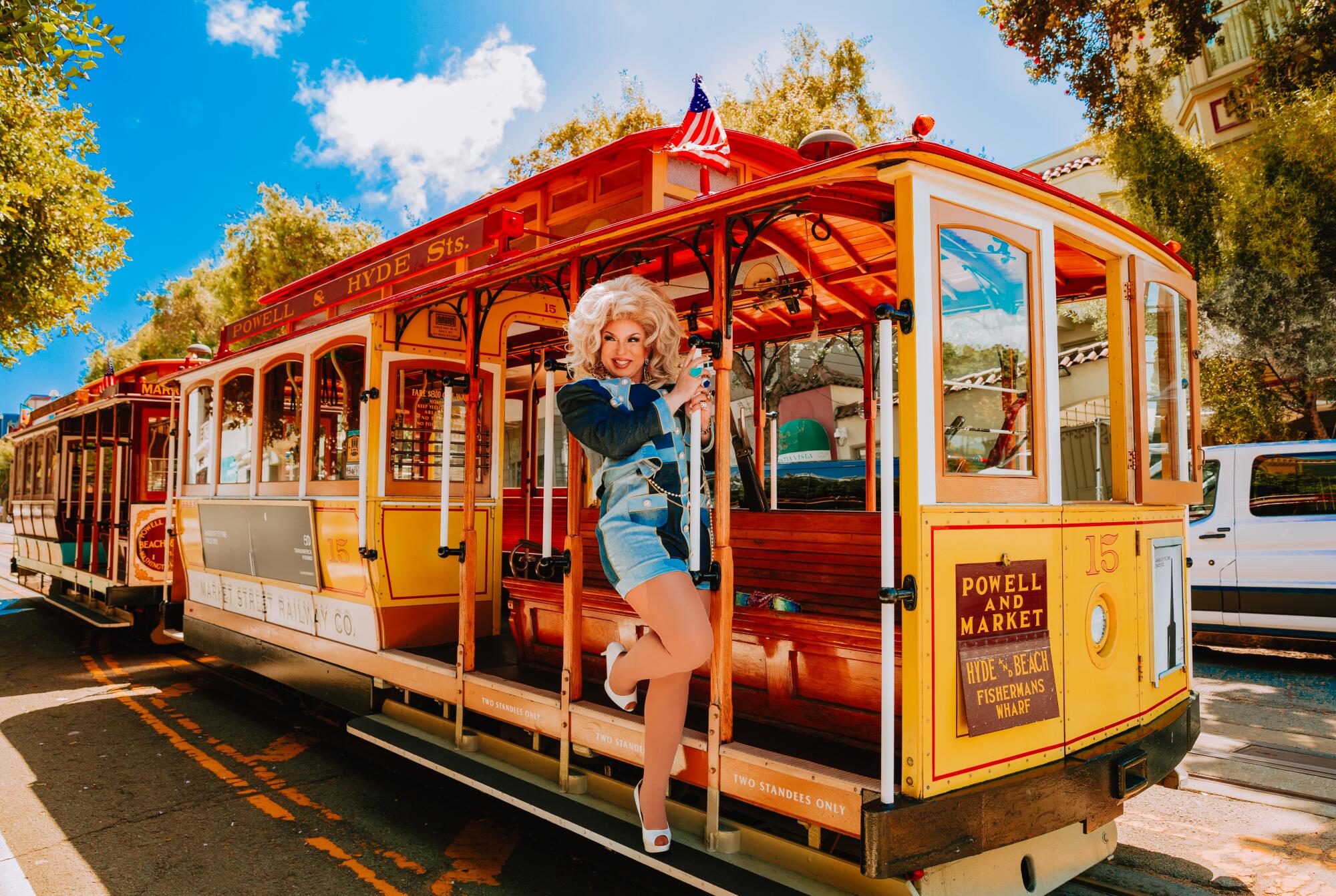
D'Arcy Drollinger on a San Francisco streetcar.
(Rachel Z Photography)
Who comes next?
The honorees still have time for their terms: Pickle will finish his next summer; Drollinger's term ends in November, but he is discussing a six-month extension. However, they are starting to see the finish line and are thinking about what, or more importantly, who is coming next. “The true measure of the success of my time as a laureate will be in the pool of applicants for the next round,” says Pickle. If he has done his job well, he says the next winner will be selected from a much larger number of applicants from all sectors of the drag community.
For Drollinger, he hopes to leave behind one or two events that his successors can replicate if they wish. “As I leave, I want to put in writing what I think this program is, to give it a little more shape,” he says. “But ultimately I hope that the role of drag laureate can be whatever that individual laureate wants to do with it.”

